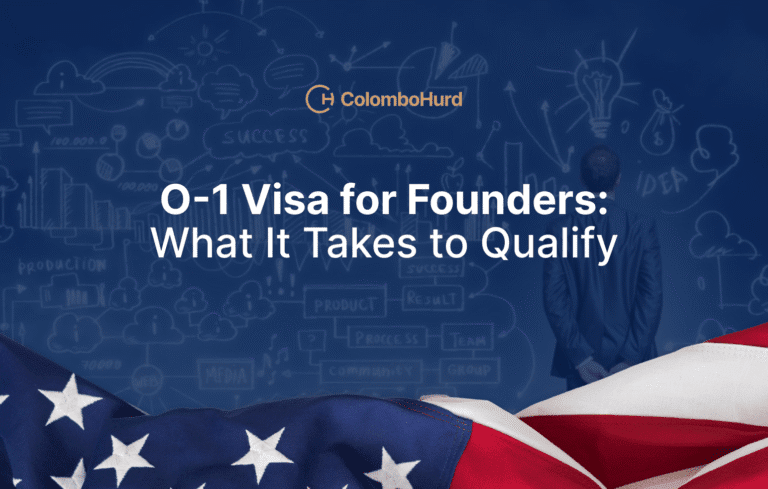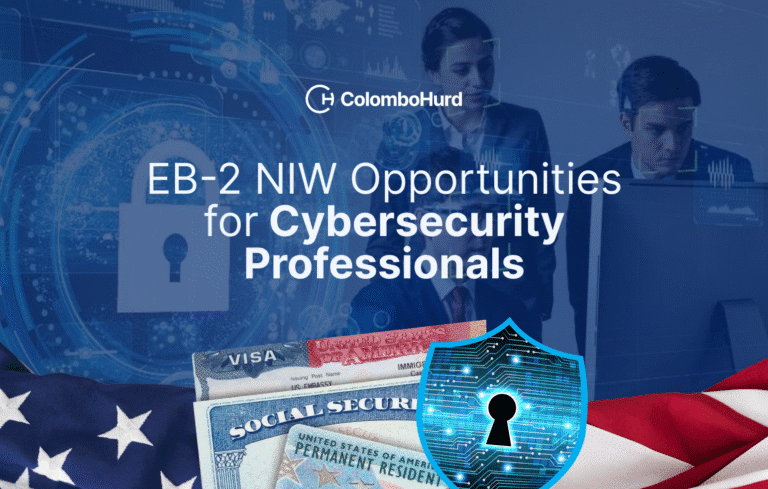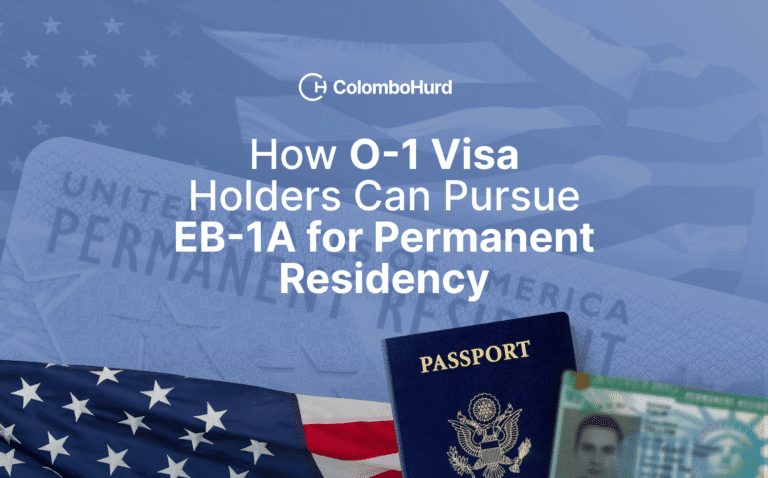Understanding how innovative entrepreneurs meet the standard of extraordinary ability
Building a company takes vision, discipline, and the ability to turn new ideas into results. Those same qualities often meet the standard of extraordinary ability under the O-1 visa.
In recent years, the U.S. Citizenship and Immigration Services (USCIS) has refined its approach to recognize a broader range of professional accomplishments. Extraordinary ability is no longer limited to celebrities or corporate executives. It now includes professionals who lead innovation, guide growing teams, or contribute to industries shaping the U.S. economy.
For many entrepreneurs, the O-1 visa offers a pathway to continue developing their ventures in the United States. It allows qualified petitioners to live and work here while expanding the impact of their ideas. This article outlines what founders must demonstrate to qualify for the O-1 visa and how recent updates have expanded flexibility for early-stage companies.
What Is the O-1 Visa?
The O-1 visa is a temporary, employment-based option for individuals who have achieved extraordinary ability in their field. It covers professionals in business, science, education, the arts, and athletics.
To qualify, petitioners must show a record of outstanding achievement, through major awards, press recognition, memberships, or original contributions. They have to meet meet at least three criteria showing distinction. USCIS reviews each petition as a whole, considering all evidence submitted. Once approved, the O-1 is valid for up to three years and can be extended.
New USCIS Policy: Founders Can Petition Through Their Own Company
A recent USCIS policy update clarified that founders can now use their own business entity to file an O-1 visa petition. Previously, they often needed an outside employer or agent, creating unnecessary barriers for those leading their own companies.
The new guidance explicitly confirms that a founder may serve as a majority shareholder in the petitioning company, eliminating earlier uncertainty about ownership thresholds and giving entrepreneurs clear authority to sponsor themselves. This change provides founders with greater autonomy and flexibility to manage their immigration process while continuing to grow their business in the United States.
Corporate structure and governance still matter. USCIS expects clear separation between the petitioner and the business to ensure the entity functions as a legitimate employer. Maintaining formal records, independent finances, and compliance documentation helps meet this standard.
This update reflects USCIS’s growing recognition of modern entrepreneurship and aligns immigration policy with how innovation and business formation actually occur today.
Read the full O-1 visa guidance update.
What Startup Founders Need to Prove to Qualify for the O-1
For founders pursuing the O-1 visa, the goal is to demonstrate extraordinary ability through measurable impact and sustained recognition. USCIS reviews each petition as a cohesive narrative, weighing how a founder’s innovation, leadership, and influence distinguish them within their field.
USCIS has clarified that comparable evidence and STEM-related work can receive favorable consideration. Even when founders lack traditional markers such as major revenue or press, they can rely on other indicators, like technological breakthroughs or research that advances national priorities, to demonstrate extraordinary ability.
Independent validation often makes a case stronger. Selection for accelerator programs such as Y Combinator or Techstars provides third-party recognition of both the founder and the innovation. However, not every entrepreneur takes that route, and comparable evidence such as investor backing or academic partnerships can be equally persuasive.
Innovation itself is central. When a founder leads the development of a new product, platform, or technology that changes how people work or communicate, that contribution can satisfy the standard of originality and significance. Rather than focusing narrowly on revenue, USCIS now considers the broader impact of a petitioner’s work.
Industry engagement, such as speaking at conferences or judging hackathons, further reinforces credibility and shows that peers value the petitioner’s expertise. Together, these elements tell a cohesive story of innovation, leadership, and recognition: the core qualities USCIS looks for when determining extraordinary ability.
How the O-1 Visa Empowers Entrepreneurs
The O-1 visa offers flexibility that reflects how modern founders work. Petitioners can use their own business as the sponsor, removing the need for a traditional employer. They may also take on multiple projects or clients through an agent structure, which mirrors the collaborative nature of entrepreneurship.
Premium processing is also available under the O-1 visa; with premium processing, petitions processing time will be shortened to 15 calendar days for a fee of $2,805.00. For founders managing fast-moving ventures, this timeline helps immigration goals keep pace with business realities.
The O-1 visa can also serve as a bridge toward permanent residency. Many petitioners later transition to the EB-1A or EB-2 National Interest Waiver (NIW) categories using the same evidence base. Above all, the O-1 recognizes entrepreneurs as key contributors to innovation and economic growth in the United States, individuals whose leadership, originality, and skill drive progress across industries.
Common Challenges and How to Overcome Them
Even with new flexibility for petitioners, the O-1 process can be demanding. One of the most common challenges is showing recognition that extends beyond the success of the company itself. USCIS looks for evidence that a petitioner’s achievements are acknowledged by peers and industry leaders, not just reflected in business performance. Awards, publications, speaking invitations, or collaborative projects help demonstrate that reputation.
Another key challenge is building a coherent story. Strong petitions connect each accomplishment to broader impact, showing how the petitioner’s work has influenced others or advanced innovation. A well-structured case reads as a consistent narrative of progress, not just a list of achievements.
Corporate structure also plays a critical role. When petitioning through one’s own company, USCIS expects to see clear separation between the individual and the business. Maintaining formal records and independent operations strengthens both compliance and credibility.
Finally, expert legal guidance can make a decisive difference. Counsel experienced in startup and entrepreneurial petitions can identify persuasive evidence, anticipate potential issues, and ensure each filing meets USCIS standards. With the right strategy, petitioners can focus on their work while building a strong and credible O-1 case.
Comparing Visa Options for Founders
Before choosing a visa path, it helps to understand how the O-1 compares to other options available to entrepreneurs and investors.
While the O-1 highlights individual recognition and extraordinary achievement, other immigration categories focus on different qualifications. Some are based on investment, while others recognize work that advances national interests. The following overview outlines how these options differ in purpose, requirements, and long-term benefits.
| Visa Type | Purpose | Key Requirements | Path to Residency | Best For |
| O-1 (Extraordinary Ability) | Recognizes top professionals in their field | National or international recognition; sustained achievement | Indirect (can lead to EB-1A or NIW) | Innovators, founders, or leaders with recognized expertise |
| E-2 (Investor Visa) | Encourages investment from treaty countries | Substantial investment in a U.S. business | No direct path | Entrepreneurs managing and growing their investment |
| EB-1A (Extraordinary Ability Green Card) | Grants permanent residency to top achievers | Must prove extraordinary ability and sustained acclaim | Direct | Established professionals ready for permanent residence |
| EB-5 (Investor Green Card) | Promotes job creation through capital investment | Investment of $800,000–$1,050,000 and 10 full-time U.S. jobs | Direct | Investors able to make and sustain a qualifying investment |
| EB-2 NIW (National Interest Waiver) | Waives job offer requirement for work benefiting the U.S. | Advanced degree or exceptional ability; national benefit | Direct | Founders or professionals whose work serves U.S. interests |
Each path offers unique benefits depending on the petitioner’s goals. The O-1 provides flexibility and recognition for extraordinary skill. The E-2 and EB-5 emphasize investment, while the EB-1A and EB-2 NIW provide direct routes to permanent residency for those with exceptional achievements or national impact.
Conclusion
Entrepreneurs already demonstrate many of the qualities that define extraordinary ability. Building a company, leading a team, or developing new technology requires the same innovation and persistence the O-1 visa is designed to recognize.
Exploring options early helps founders align immigration strategy with business goals. Whether through the O-1, EB-2 NIW, or another category, a well-prepared petition can open the door to long-term opportunity and growth in the United States.
Complete our questionnaire to see if you qualify for the O-1.





